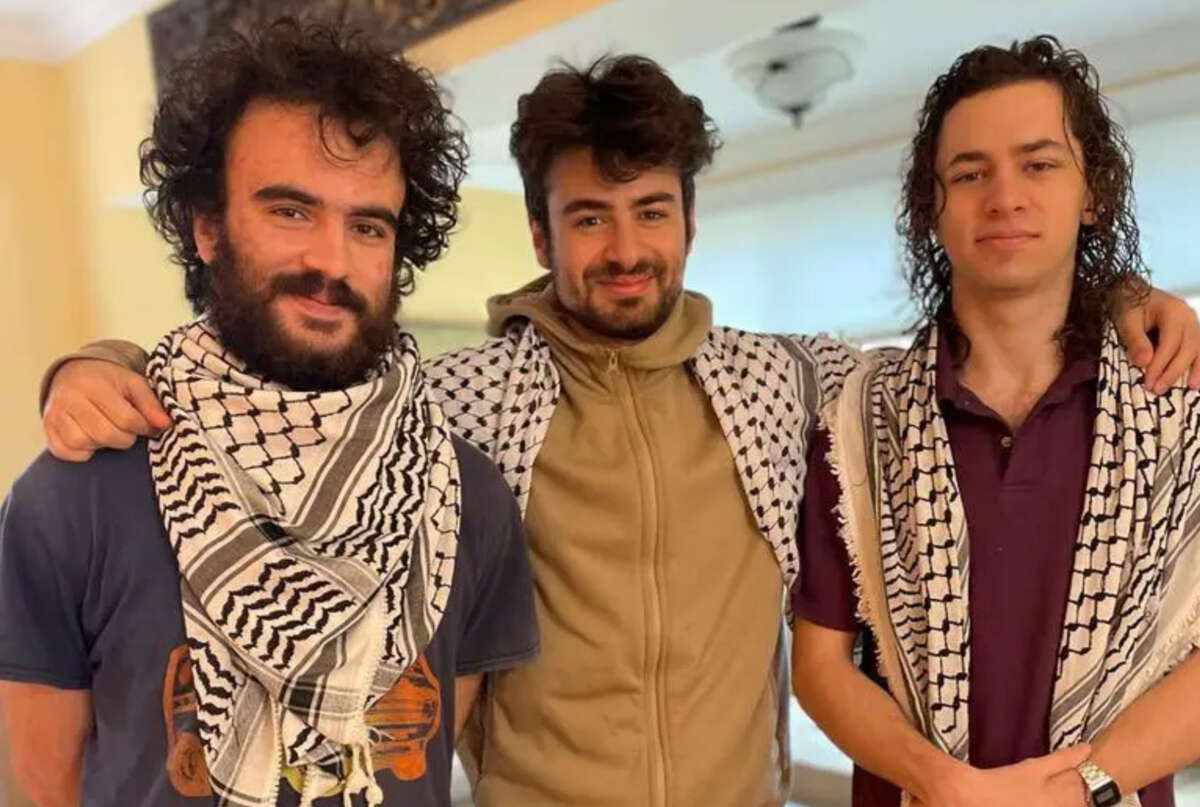Three Palestinian college students were shot and wounded by a 48-year-old white man on Saturday night in Burlington, Vermont, in an act that appears to be motivated by Islamophobia and anti-Arab racism.
The students — Hisham Awartani, who attends Brown University; Kinnan Abdalhamid, who attends Haverford College in Pennsylvania; and Tahseen Ahmed, who attends Connecticut’s Trinity College — were walking near the home of one of their relatives on Saturday evening and speaking Arabic when a man shot them with a pistol. The man didn’t speak to them before or afterward.
“In this charged moment, no one can look at this incident and not suspect that it may have been a hate-motivated crime,” said Burlington Police Chief Jon Murad.
When local police — aided by federal agents with the Bureau of Alcohol, Tobacco, Firearms and Explosives (ATF) — searched the neighborhood for witnesses on Sunday, they met 48-year-old Jason Eaton at an apartment building outside where the shooting took place. According to a police affidavit, Eaton responded to investigators knocking on his door by saying something to the effect of “I’ve been waiting for you.” When asked what he meant, Eaton simply responded that he wanted a lawyer before answering any questions.
Later on Sunday, investigators obtained a warrant to search Eaton’s home, where they found a loaded pistol and bullets matching the sizing and brand of those used against the three students.
Eaton, who appeared in court on Monday, pleaded not guilty to three charges of attempted murder. Observers have characterized the shooting as a racially motivated act of political violence.
“There is a lot of evidence pointing to the fact that [the students] were wearing the keffiyeh, the traditional Palestinian scarf, and they were not robbed, they were not held up, and it was not an act of domestic violence. This was a targeted shooting,” said Abed Ayoub, national executive director of the American-Arab Anti-Discrimination Committee.
The Council on American-Islamic Relations also condemned the violence as clearly being motivated by racism, pointing to the fact that hate-based crimes against Muslims, Arabs and Palestinians have increased by 216 percent since Israel began its genocidal siege of Gaza in early October.
“We welcome the arrest of a suspect in this shooting, and we encourage law enforcement to file state and federal hate crime charges if the evidence confirms that anti-Palestinian racism motivated this attack,” CAIR National Executive Director Nihad Awad said in a statement. “We also call on elected officials to reject and condemn the rise in anti-Muslim bigotry and anti-Palestinian racism that has led to hate crimes, discrimination, and censorship targeting everyone from students to workers to protestors who dare to speak up for Palestinian human rights.”
Rich Price, the uncle of Awartani, said that his nephew and his friends were likely targeted for being visibly Arab.
“I believe the families fear that this was motivated by hate, that these boys were, these young men, were targeted because they were Arabs, that they were wearing keffiyehs,” Price said.
Attorney General Merrick Garland also appeared to recognize that the violence against the three students was emblematic of a deeper problem, noting in a recent statement that there has been “a sharp increase in the volume and frequency of threats against Jewish, Muslim, and Arab communities across our country” since October 7.
One instance of such violence took place last month, when landlord Joseph Czuba stabbed two of his tenants, killing 6-year-old Wadea Al-Fayoume and seriously wounding his mother. Prosecutors allege that Czuba had been radicalized by right-wing radio programs spewing Islamophobic rhetoric.
Lawmakers in Congress condemned the recent shooting on social media.
“Heartbroken to see another vicious act of anti-Palestinian hate in our country,” Rep. Shontel Brown (D-Ohio) said on X. “I strongly condemn the targeted violence against three Palestinian students in Vermont. We must reject Islamophobia and all forms of ethnic, religious, and racial hatred.”
Rep. Rashida Tlaib (D-Michigan) warned that anti-Palestinian rhetoric and the spread of misinformation online about Israel’s genocide of Palestinians in Gaza would only lead to more violence.
“The constant dehumanization of Palestinians has very real consequences and is fueling anti-Palestinian racism,” Tlaib said.
Speaking against the authoritarian crackdown
In the midst of a nationwide attack on civil liberties, Truthout urgently needs your help.
Journalism is a critical tool in the fight against Trump and his extremist agenda. The right wing knows this — that’s why they’ve taken over many legacy media publications.
But we won’t let truth be replaced by propaganda. As the Trump administration works to silence dissent, please support nonprofit independent journalism. Truthout is almost entirely funded by individual giving, so a one-time or monthly donation goes a long way. Click below to sustain our work.
